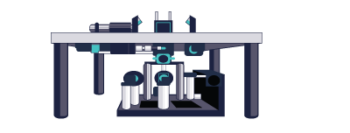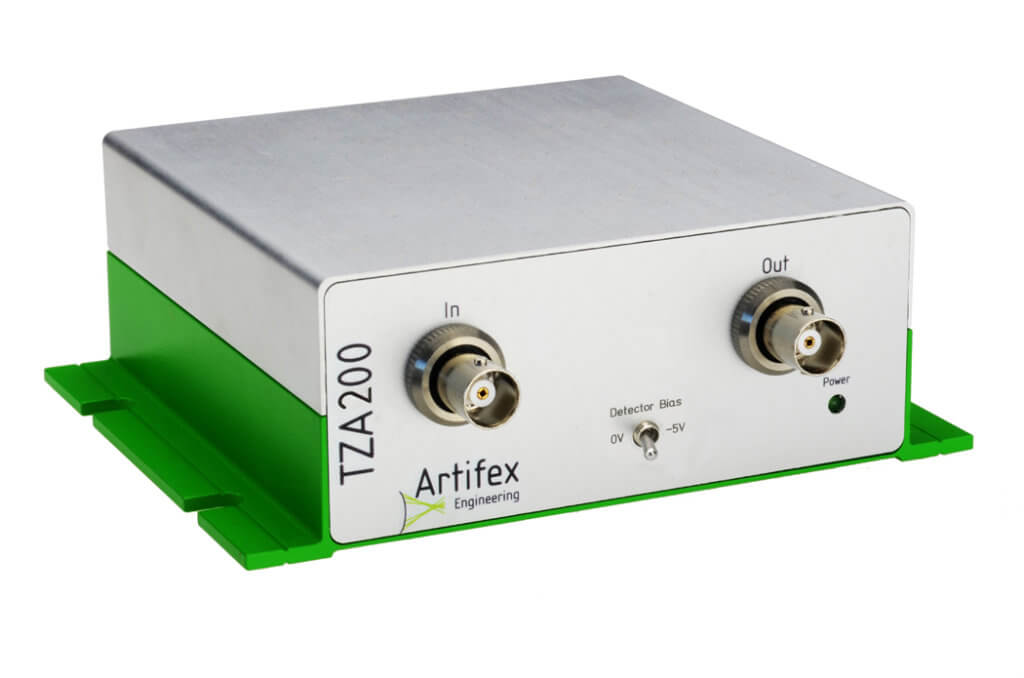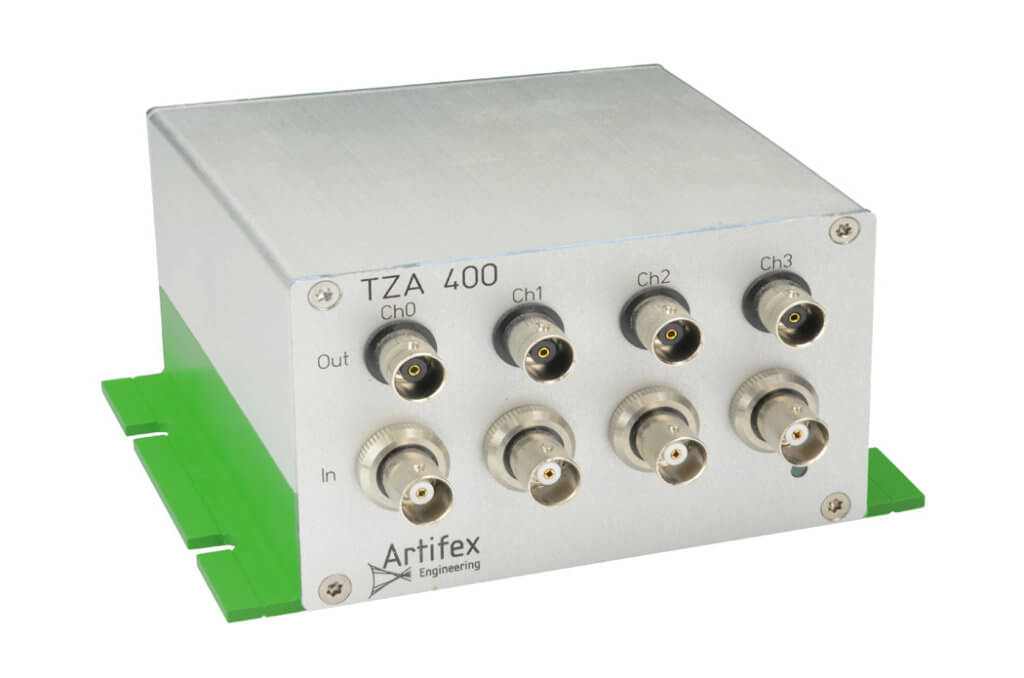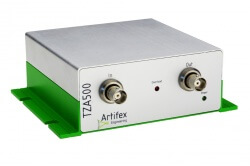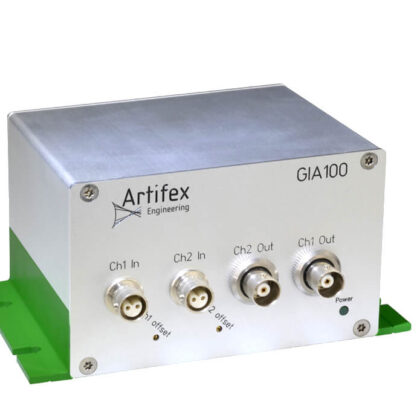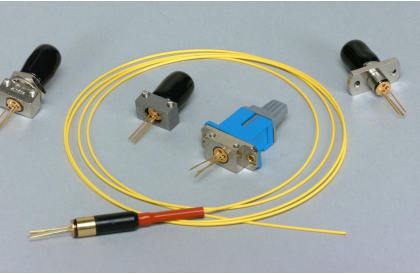The TZA series of amplifiers employs precision dual transimpedance input stages to provide for high common mode rejection and linearity throughout the full dynamic range.
These transimpedance amplifiers are particularly useful for the measurement of current from photodiodes. The output is a voltage linearly proportional to input current and thus, to input power in photodiode monitoring applications. The fast response time at high signal-noise-ratio makes the TZA series particularly useful in systems control feedback loops.
The high sensitivity and large dynamic range allow measurement of a wide range of optical sources, such as lasers and LEDs, via a variety of photodiodes for these applications.
The TZA series is insensitive to electromagnetic interference by design, an important factor when working in ‘dirty’ industrial environments. The case wings allow you to mount the amplifier on standard 25mm and 1″ optical tabletops and are useful for OEM applications. Please see the datasheets for full details of the options available for each model.
Highlights:
- Small signal rise time (10-90%): 35ns
- Bandwidth: 10MHz
- Maximum input current: 4.5mA
- Noise Equivalent current: 1 µA
Applications
- Production automation
- Component testing
- Quality control
- OEM (Laser noise monitoring)











